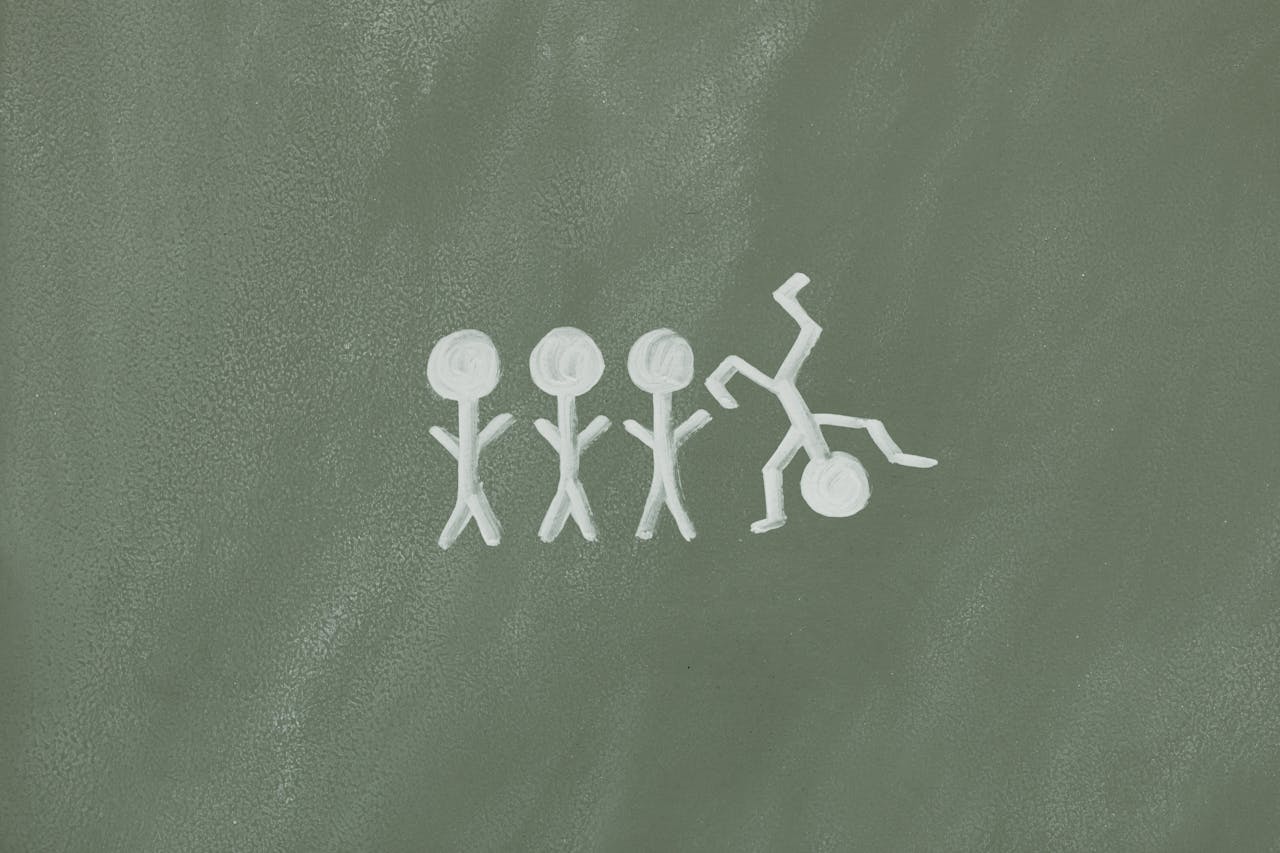-
 Tammette Chitwood : Author
Tammette Chitwood : AuthorAs your therapist, I will provide you with a welcoming and safe space to explore the desired outcome of your life. With empathy and compassion, I will seek to see your experiences through your lens and work with you toward holistic healing – physical, emotional, mental, relational, and spiritual – with God’s help and direction. My desire is to walk alongside you on this journey and help you to realize the potential you have within to achieve greatness and restoration in your personal life and relationships.
-
 Kate Motaung : Curator
Kate Motaung : CuratorKate Motaung is the Senior Writer, Editor, and Content Manager for a multi-state company. She is the author of several books including Letters to Grief, 101 Prayers for Comfort in Difficult Times, and A Place to Land: A Story of Longing and Belonging. Kate is also the host of Five Minute Friday, an online writing community that equips and encourages Christian writers, and the owner of Refine Services, a company that offers editing services. She and her South African husband have three young adult children and currently live in West Michigan. Find Kate’s books at katemotaung.com/books.
When you’re in need, it’s important to have options to meet that need. If you’re struggling with mental health or other concerns, being able to connect easily and quickly with a trained professional who can help you begin to address those concerns can be a lifesaver. For a teen who’s navigating the various complexities of adolescence, having the option to connect remotely and securely with a professional for support can make a huge difference. Online Therapy in Brief Our
Just like the terrible twos, most parents dread the time their child becomes a teenager. This fear stems from all we know that teens go through during this time of transition. As a child enters their teen years, they go through many changes, including hormonal changes, as they navigate puberty. These changes are to be expected. However, teens also often experience depression and as parents and guides, we must watch for the signs of depression in young people. Depression
“Stop! Stop that now, I’m serious, Levi!!” an exasperated young mom yelled to her hyperactive child the other day in the store. To her dismay and frustration, the little boy’s behavior only worsened each time she tried to calm him down. We may feel Deja vu when we watch a scene like this if we have ever experienced the trials of raising a difficult child. Visions of screaming matches, the toy crashing, the glass smashing, and that feeling of utter
The holidays are often portrayed as a time for family gatherings, festive meals, and a sense of togetherness. But for some of us, this season can highlight feelings of anxiety brought on by loneliness, especially if circumstances leave us without loved ones nearby. If you are spending the holidays alone or you're battling with loneliness and anxiety, remember this: you are never truly alone. God is always with you, and He can use this time to fill your heart
Because neuroscience is always changing, it’s important to understand that there are no longer different types of autism. In 2013, the diagnostic manual used by the mental health industry in the U.S. reversed outdated information that classified autism into separate categories. Today, mental health professionals provide a diagnosis of autism spectrum disorder, which can vary in its level of diagnosis. Instead of different types of autism, there are now levels one, two, and three, which are divided based on
Mental health is an important aspect of a healthy life. It is how humans process thoughts, emotions, and behaviors. However, just as adults can develop a mental disorder, children are also susceptible. Many mental disorders begin developing during childhood and the teen years. Know what common symptoms of mental disorders to be aware of in children. What are the common symptoms of childhood mental disorders? Each mental disorder has its own symptoms, but many of them overlap. The problem
For many years, people with disabilities, learning differences, or mental and emotional health challenges have been stigmatized. Often, the ways that society has emphasized and measured intelligence and skill are not consistent with the way that God views us, especially where ADHD in children is concerned. Unfortunately, the environments structured to unlock our potential in childhood, at the most vulnerable time of life, often do the opposite. Sometimes they squash our inquisitive nature instead of unleashing God’s creativity in
Change isn’t always easy to make sense of or adjust to. The disruption of familiar patterns can be confusing to navigate, and it requires you to be resilient and highly adaptable to cope. The adolescent years are characterized by several things happening all at once, but those mostly boil down to one thing: change. These years are a time of transition toward adulthood and gaining deeper self-understanding and identity. They can be a difficult time. As one can imagine,
Autism is a developmental disability that primarily affects social interactions and communication skills, and typically includes fixations with routines, restricted interests, and repetitive patterns of behavior. Before 2013, the American Psychiatric Association (APA) recognized four different types of autism based on specific sets of symptoms affecting a child’s development. Each one was given a unique diagnostic label in the Diagnostic and Statistical Manual of Mental Disorders (DSM-IV) with the intent of helping medical professionals, educators, and parents understand the
The teenage years are a notoriously turbulent time, as young people seek independence and look to assert their unique identity, often without yet possessing the right emotional and life skills to effectively do this. One area parents can particularly struggle with is teen anger management, which can appear in many shapes and forms and usually hints at an underlying issue. While deep emotions are difficult enough to deal with, it sometimes seems impossible to break through the angry façade,
Teenage life is often a lot of fun and there are many articles discussing the positive developments that occur in the life of a teenager. It is equally important to be aware of the issues, sometimes big issues, that can make a teen swerve into unhelpful behavior and development. Some of these teenage problems will include the risks of body shaming, bullying, anxiety, and social media, to name a few. A strong family environment and culture will certainly assist
The holidays bring a string of values and emotions to many: thanksgiving, love, kindness, generosity, and wonder. But, unfortunately, to some, it also brings stress in the form of financial budgets, gift-giving, and unavoidable toxic extended family members. Your mental wellness is an integral part of your overall health. Yet, people spend three months in a stressful fight or flight response to the holidays every year. Make this season different. Enjoy the holidays for the real reason we celebrate:













